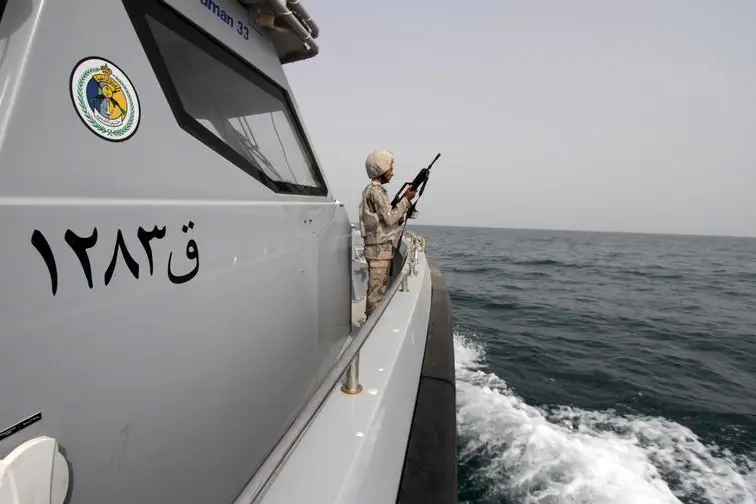PHOTO
Alexandria, Egypt: The Kingdom of Saudi Arabia, represented by the Transport General Authority (TGA), signed a memorandum of understanding on mutual recognition of seafarers' certificates between the government of the Kingdom and the government of the Arab Republic of Egypt.
The memorandum of understanding was signed by the Acting President of TGA, Dr. Rumaih bin Mohammed Al-Rumaih, and from the Egyptian side, Chairman of the Board of Directors of the Egyptian Authority for Maritime Safety (EAMS), Rear Admiral Hussein Mustafa Al-Jaziri, in the presence of the Saudi Ambassador to Egypt, Osama bin Ahmed Naqli.
During the signing ceremony for MoU, the Saudi Ambassador to Egypt exchanged documents ratifying the agreement concluded between the two fraternal countries in the field of maritime cooperation.
The signed MoU comes with the aim of recognizing the education, training and qualifying certificates for seafarers working on ships between the Kingdom and Egypt, and to implement the provisions of the International Convention (STCW) of 1978 and its amendments regarding levels of training, certification and shift work for seafarers, and to ensure the efficiency of officers and seafarers working on board ships belonging to the two countries and their eligibility to carry out and carry out their duties in order to achieve optimal standards of maritime safety, property protection, preservation of the marine environment, and the fulfillment of the requirements related to the duties of each of them while carrying out their work on board ships, the memorandum will also enhance aspects of coordination and joint work between the two countries in setting the frameworks and legislation necessary to implement its requirements and provide educational and training programs and evaluation mechanisms to grant certificates to seafarers of the two countries.
Also, this memorandum comes within the framework of "Our prudent government's keenness and interest in seafarers, supporting them in educational and training programs, developing their capabilities in the maritime sector, and opening new horizons for cooperation and joint work in the fields of knowledge and qualification, in a way that guarantees improving the quality and efficiency of Saudi seafarers, and to complete the process of giving and make more complementary efforts with the participation of fellow seafarers. from different countries of the world to ensure the continued flow of global supply chains and logistics services."
The memorandum of understanding on the mutual recognition of seafarers’ certificates between the Kingdom of Saudi Arabia and the Arab Republic of Egypt includes a set of important regulatory articles such as requirements for recognition of certificates, training and evaluation of seafarers in accordance with the provisions of the Basic Agreement STCW Convention, and how the maritime authority issues a certificate of recognition after verifying the recognition requirements, so that the assessment of quality standards is compliant with the requirements of Regulation (I/8) of the basic agreement, and that those responsible for training and evaluation be suitably qualified according to the standards of the agreement, as well as mechanisms for auditing and verifying the validity of issuing certificates and validity of their duration, and exchanging visits necessary to verify the implementation of requirements, including the possibility of visiting departments maritime and maritime educational and training institutions of the other party in order to see the capabilities of each party in implementing the requirements of maritime training and education and issuance of certificates, standards for issuing certificates, procedures for endorsement, renewal, suspension or cancellation of certificates, as well as exchanging information regarding the validity of the certificate and ensuring its validity, and establishing an electronic database of maritime personnel and other levels of organization And joint work to serve the sailors working on board ships in both countries.





















